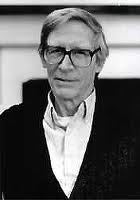Philosophy
 Episode 8. Philosopher John Rawls asks us to consider what formal principles of justice rational and mutually disinterested persons would choose in the original position of equality behind the veil of ignorance. If you didn't know your own place in society, the frequency of people like you, or the original distribution of natural assets and abilities, there is always the chance that once the veil is removed, you might find yourself among the least advantaged, and so the rational principles of justice would be one of maximal basic liberties for all persons and one of income distribution that would maximally benefit those worst off.
Episode 8. Philosopher John Rawls asks us to consider what formal principles of justice rational and mutually disinterested persons would choose in the original position of equality behind the veil of ignorance. If you didn't know your own place in society, the frequency of people like you, or the original distribution of natural assets and abilities, there is always the chance that once the veil is removed, you might find yourself among the least advantaged, and so the rational principles of justice would be one of maximal basic liberties for all persons and one of income distribution that would maximally benefit those worst off.
The first objection you may want to throw against Rawls is that it appeals to the lowest common denominator (I know I did the first time I read his work). Most of us agree that when it comes to justice, however, we should ignore from our considerations morally arbitrary variables over which we have no control, like race or age, for instance. One might want to conclude, therefore, that a truly fair system would be one based on merit and effort, but Rawls brilliantly points out that even a meritocracy doesn't go far enough in discarding morally arbitrary considerations of variables for which we have no control: even the naturally gifted can't claim credit for their success, since their success is based on factors as arbitrary as birth order. In a Harvard classroom full of students who most likely believe in a meritocracy, an impromptu poll hilariously proves Rawls' point :)
 This analysis leads to a discussion of fair distribution of wealth, income and opportunities in which Rawls' egalitarianism must contend, in a truly fascinating set of thought-provoking arguments, against alternative systems of utilitarianism, libertarianism and meritocracy. Finally, and in order to drive his point home, Rawls draws an important and subtle distinction between desert and entitlements to legitimate expectations, and argues that those at the bottom of society are no less worthy simply because they lack the talents that their particular society happens to favor. In a truly just society, Rawls concludes, the naturally advantaged must share with the least advantaged.
This analysis leads to a discussion of fair distribution of wealth, income and opportunities in which Rawls' egalitarianism must contend, in a truly fascinating set of thought-provoking arguments, against alternative systems of utilitarianism, libertarianism and meritocracy. Finally, and in order to drive his point home, Rawls draws an important and subtle distinction between desert and entitlements to legitimate expectations, and argues that those at the bottom of society are no less worthy simply because they lack the talents that their particular society happens to favor. In a truly just society, Rawls concludes, the naturally advantaged must share with the least advantaged.
Whatever conclusions they draw, this is how politicians should deliberate! :)
If you're curious about the birth-order effect, check out Charlie Rose and Stephen Colbert talking with Frank Sulloway about it.
- Crispin Sartwell's Challenge On The Moral Justification Of State Power
Crispin Sartwell has a new book out and issues this challenge:My irritating yet astounding new book Against the State (SUNY Press) argues that (1) The political state or government rests on violence (force and coercion). (2) Violence is always wrong...
- Dan Letovsky: Unscripted Remarks, September 2005
In a heated yet civilized debate portrayed in the early scenes of Allan Bloom?s The Republic of Plato, an attempt to define justice is made. This in depth discussion of the concept of justice consists of Socrates and a crowd of younger and arguably less...
- Elizabeth Warren Is Awesome
Part of my growing opposition to libertarianism and political conservatism is due to the fact that they are shallow and myopic philosophies based on the unrealistic illusion of self-sufficiency and individual isolationism, and I don't think...
- Justice - What Is The Right Thing To Do?
Episode 12. When we, post-colonial citizens of liberal democracies in the 21st century, deliberate about principles of justice and the distribution of rights, we tend to think that respect for the plurality of competing conceptions of the good requires...
- Are Ethics And Political Philosophy Compatible And Other Questions
"What’s the point of political philosophy?" by Alex Worsnip May 17th, 2013 Prospect It is a near-truism that philosophy operates at a remove from the “real world.” Many philosophers suppose that the answers to questions in logic, epistemology...
Philosophy
Justice - What Is the Right Thing To Do?

The first objection you may want to throw against Rawls is that it appeals to the lowest common denominator (I know I did the first time I read his work). Most of us agree that when it comes to justice, however, we should ignore from our considerations morally arbitrary variables over which we have no control, like race or age, for instance. One might want to conclude, therefore, that a truly fair system would be one based on merit and effort, but Rawls brilliantly points out that even a meritocracy doesn't go far enough in discarding morally arbitrary considerations of variables for which we have no control: even the naturally gifted can't claim credit for their success, since their success is based on factors as arbitrary as birth order. In a Harvard classroom full of students who most likely believe in a meritocracy, an impromptu poll hilariously proves Rawls' point :)
 This analysis leads to a discussion of fair distribution of wealth, income and opportunities in which Rawls' egalitarianism must contend, in a truly fascinating set of thought-provoking arguments, against alternative systems of utilitarianism, libertarianism and meritocracy. Finally, and in order to drive his point home, Rawls draws an important and subtle distinction between desert and entitlements to legitimate expectations, and argues that those at the bottom of society are no less worthy simply because they lack the talents that their particular society happens to favor. In a truly just society, Rawls concludes, the naturally advantaged must share with the least advantaged.
This analysis leads to a discussion of fair distribution of wealth, income and opportunities in which Rawls' egalitarianism must contend, in a truly fascinating set of thought-provoking arguments, against alternative systems of utilitarianism, libertarianism and meritocracy. Finally, and in order to drive his point home, Rawls draws an important and subtle distinction between desert and entitlements to legitimate expectations, and argues that those at the bottom of society are no less worthy simply because they lack the talents that their particular society happens to favor. In a truly just society, Rawls concludes, the naturally advantaged must share with the least advantaged.Whatever conclusions they draw, this is how politicians should deliberate! :)
If you're curious about the birth-order effect, check out Charlie Rose and Stephen Colbert talking with Frank Sulloway about it.
Episode list: 1, 2, 3, 4, 5, 6, 7, 8, 9, 10, 11, 12.
.
.
- Crispin Sartwell's Challenge On The Moral Justification Of State Power
Crispin Sartwell has a new book out and issues this challenge:My irritating yet astounding new book Against the State (SUNY Press) argues that (1) The political state or government rests on violence (force and coercion). (2) Violence is always wrong...
- Dan Letovsky: Unscripted Remarks, September 2005
In a heated yet civilized debate portrayed in the early scenes of Allan Bloom?s The Republic of Plato, an attempt to define justice is made. This in depth discussion of the concept of justice consists of Socrates and a crowd of younger and arguably less...
- Elizabeth Warren Is Awesome
Part of my growing opposition to libertarianism and political conservatism is due to the fact that they are shallow and myopic philosophies based on the unrealistic illusion of self-sufficiency and individual isolationism, and I don't think...
- Justice - What Is The Right Thing To Do?
Episode 12. When we, post-colonial citizens of liberal democracies in the 21st century, deliberate about principles of justice and the distribution of rights, we tend to think that respect for the plurality of competing conceptions of the good requires...
- Are Ethics And Political Philosophy Compatible And Other Questions
"What’s the point of political philosophy?" by Alex Worsnip May 17th, 2013 Prospect It is a near-truism that philosophy operates at a remove from the “real world.” Many philosophers suppose that the answers to questions in logic, epistemology...
